Original German WWII M24 Stick Grenade Anti-Tank Bundle - Geballte Ladung – International Military Antiques
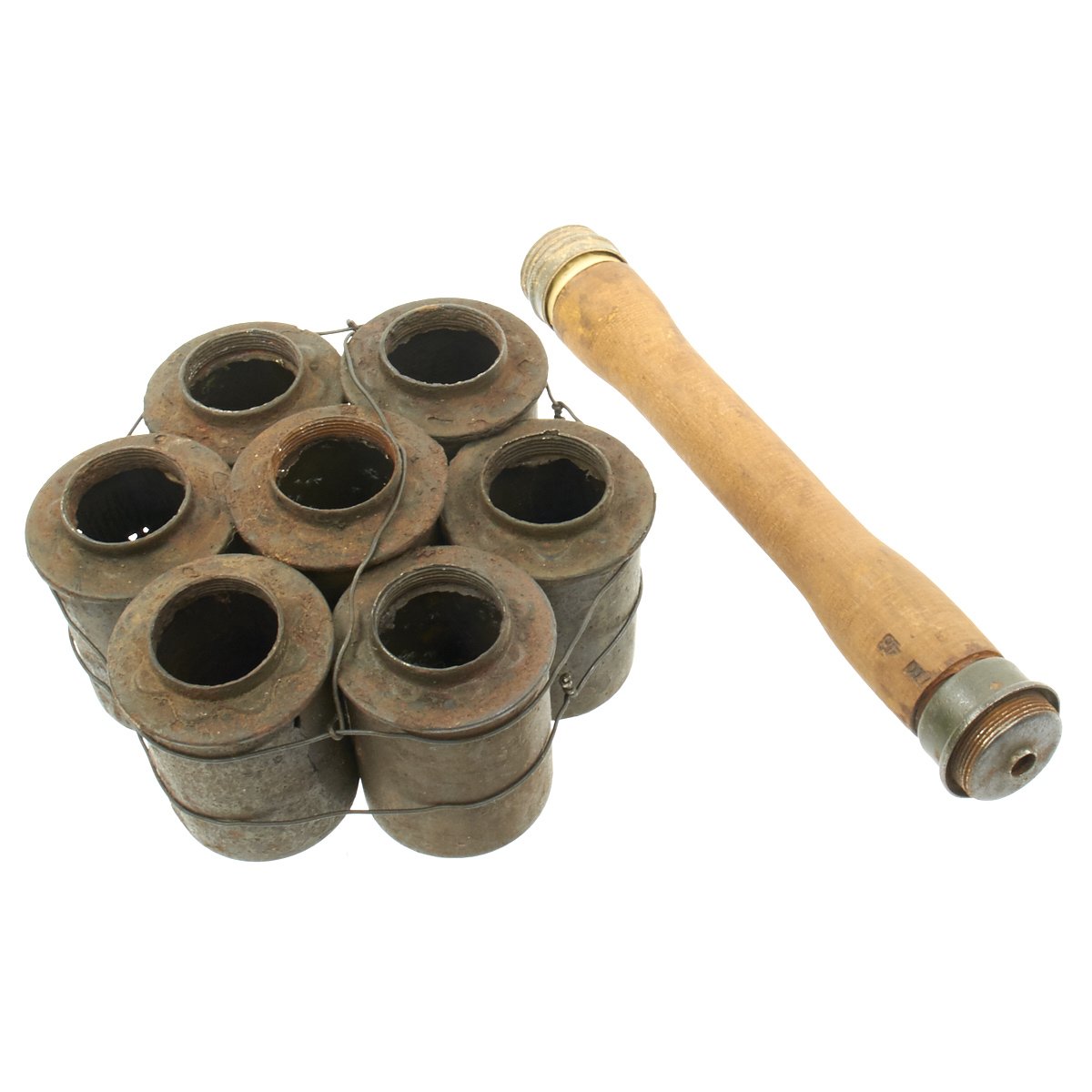
Original Item: Only One Available. In WW2 the stick of the German M24 (Model 24) grenade provided a lever, significantly improving the throwing distance. The Model 24 could be thrown approximately 30 to 40 yards, whereas the British Mills bomb could only be thrown about 15 yards. The design also minimized the risk of the grenade rolling downhill back towards the thrower when used in hilly terrain or in urban areas. These grenades were extremely useful for clearing out entrenched infantry positions. Although they were not individually very effective against armored vehicles and fortifications, the grenade could be used in an improvised "bundle" style with another six explosive heads (without their sticks) wired around the central stick grenade. These were known as Geballte Ladung (literally "baled charge" or "concentrated charge"). These Geballte ladung were used for demolition work rather than anti personnel use. They were also capable of blowing off tracks from an armored vehicle though not of penetrating anything more than very thin amour.This example, acquired from a private collector, has been demilitarized according to specifications by the BATF. This Geballte Ladung is comprised completely of genuine WWII German stick grenades, many of which still bear German manufacturer markings and dates. The wiring also appears to be original to the WWII era, but we cannot be totally certain. Regardless this is easily the best wartime example or representation using all original parts of this incredibly rare improvised bundle so often used by the German’s against American Tanks in WWII.
Original Item: Only One Available. In WW2 the stick of the German M24 (Model 24) grenade provided a lever, significantly improving the throwing distance. The Model 24 could be thrown approximately 30 to 40 yards, whereas the British Mills bomb could only be thrown about 15 yards. The design also minimized the risk of the grenade rolling downhill back towards the thrower when used in hilly terrain or in urban areas. These grenades were extremely useful for clearing out entrenched infantry positions. Although they were not individually very effective against armored vehicles and fortifications, the grenade could be used in an improvised "bundle" style with another six explosive heads (without their sticks) wired around the central stick grenade. These were known as Geballte Ladung (literally "baled charge" or "concentrated charge"). These Geballte ladung were used for demolition work rather than anti personnel use. They were also capable of blowing off tracks from an armored vehicle though not of penetrating anything more than very thin amour.<br><br>This example, acquired from a private collector, has been demilitarized according to specifications by the BATF. This Geballte Ladung is comprised completely of genuine WWII German stick grenades, many of which still bear German manufacturer markings and dates. The wiring also appears to be original to the WWII era, but we cannot be totally certain. Regardless this is easily the best wartime example or representation using all original parts of this incredibly rare improvised bundle so often used by the German’s against American Tanks in WWII.
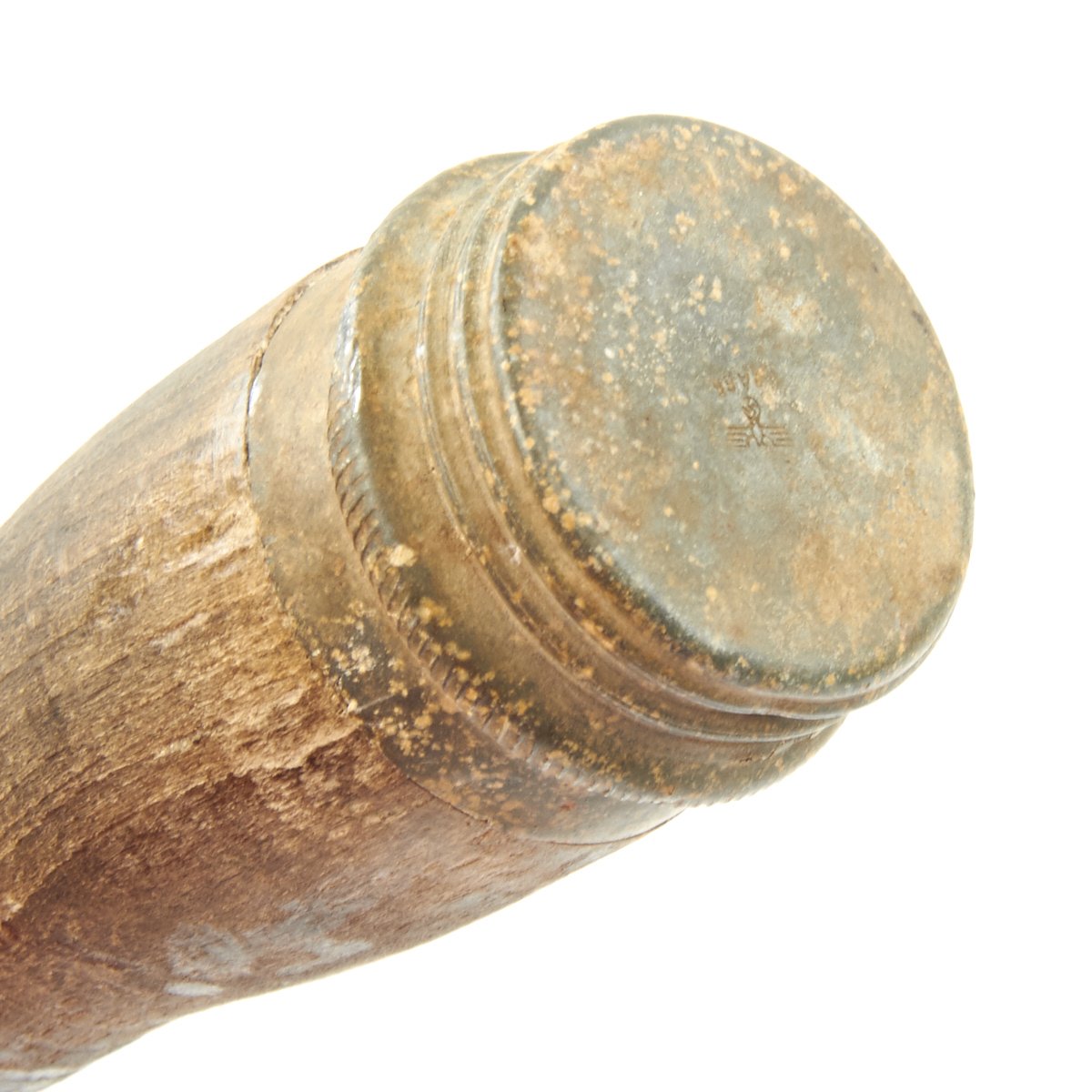
Original German WWII 1940 M24 Stick Grenade with Fragmentation Sleeve – International Military Antiques

Original WW2 German M24 Stick Grenade & Evolution of the Stick Grenade
What did the German soldiers use to bundle their grenades? - Quora

Stielhandgranate - Wikipedia
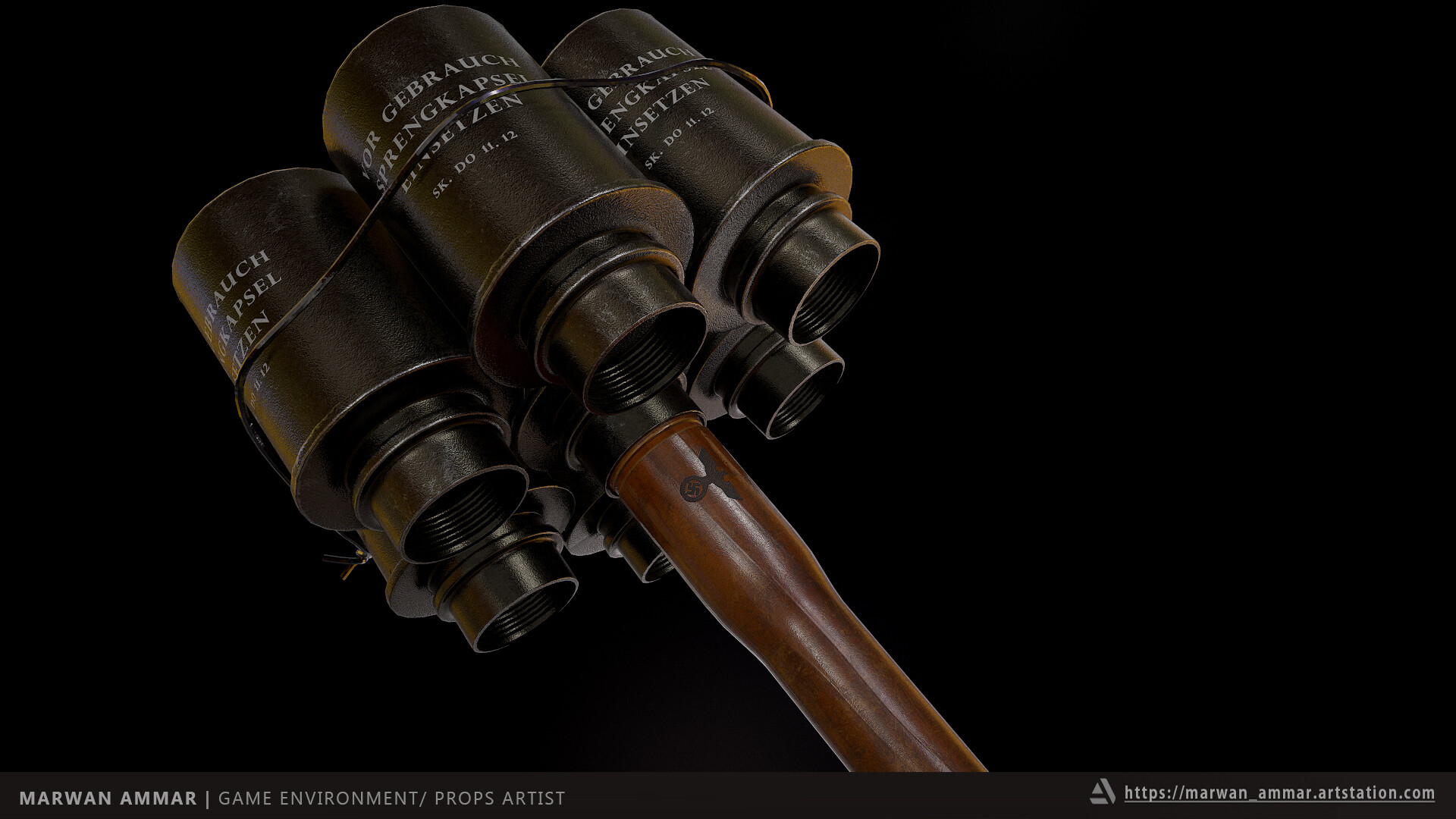
ArtStation - German M24 Stick Grenade Anti-Tank Bundle-WWII

Original WW2 German M24 Stick Grenade & Evolution of the Stick Grenade
What's the difference between the Mk 2 hand grenade from WW2 and the modern M26? - Quora
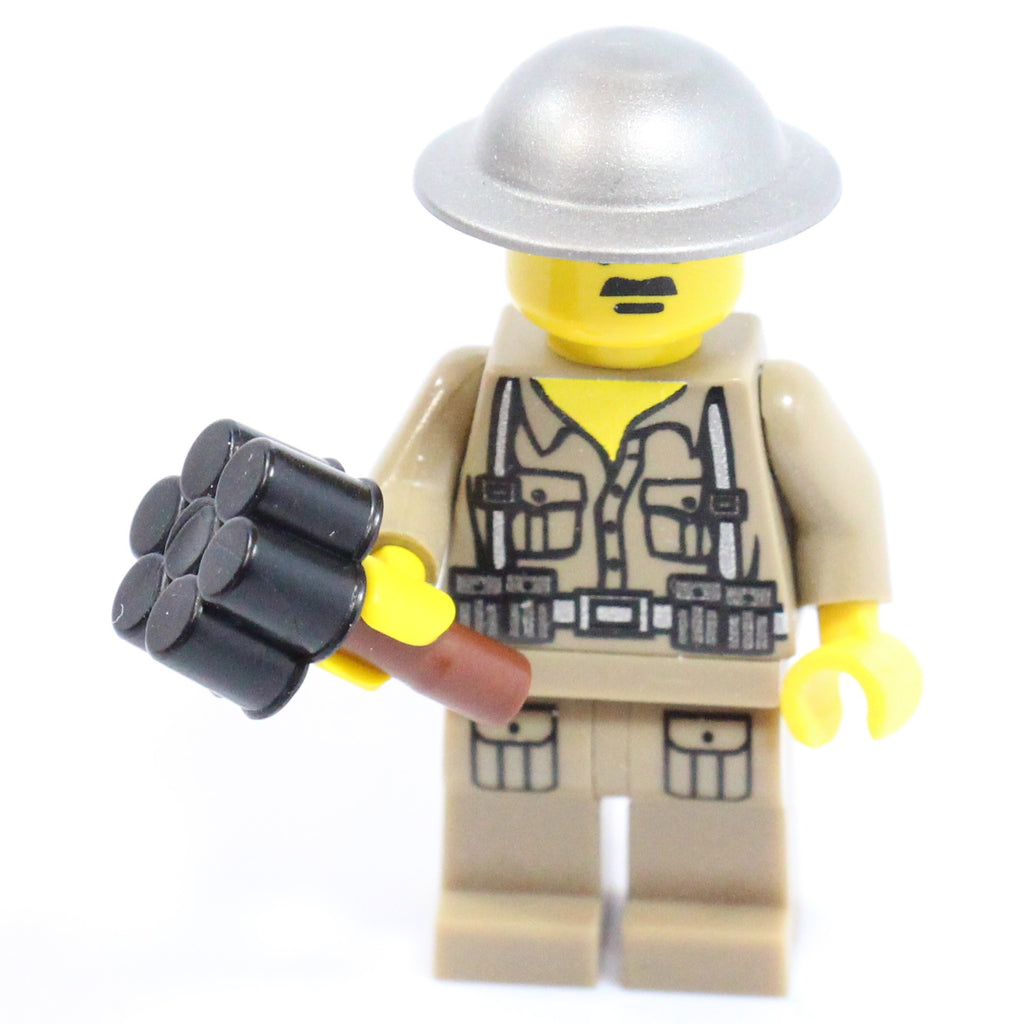
M24 Anti Tank Grenade – BrickTactical
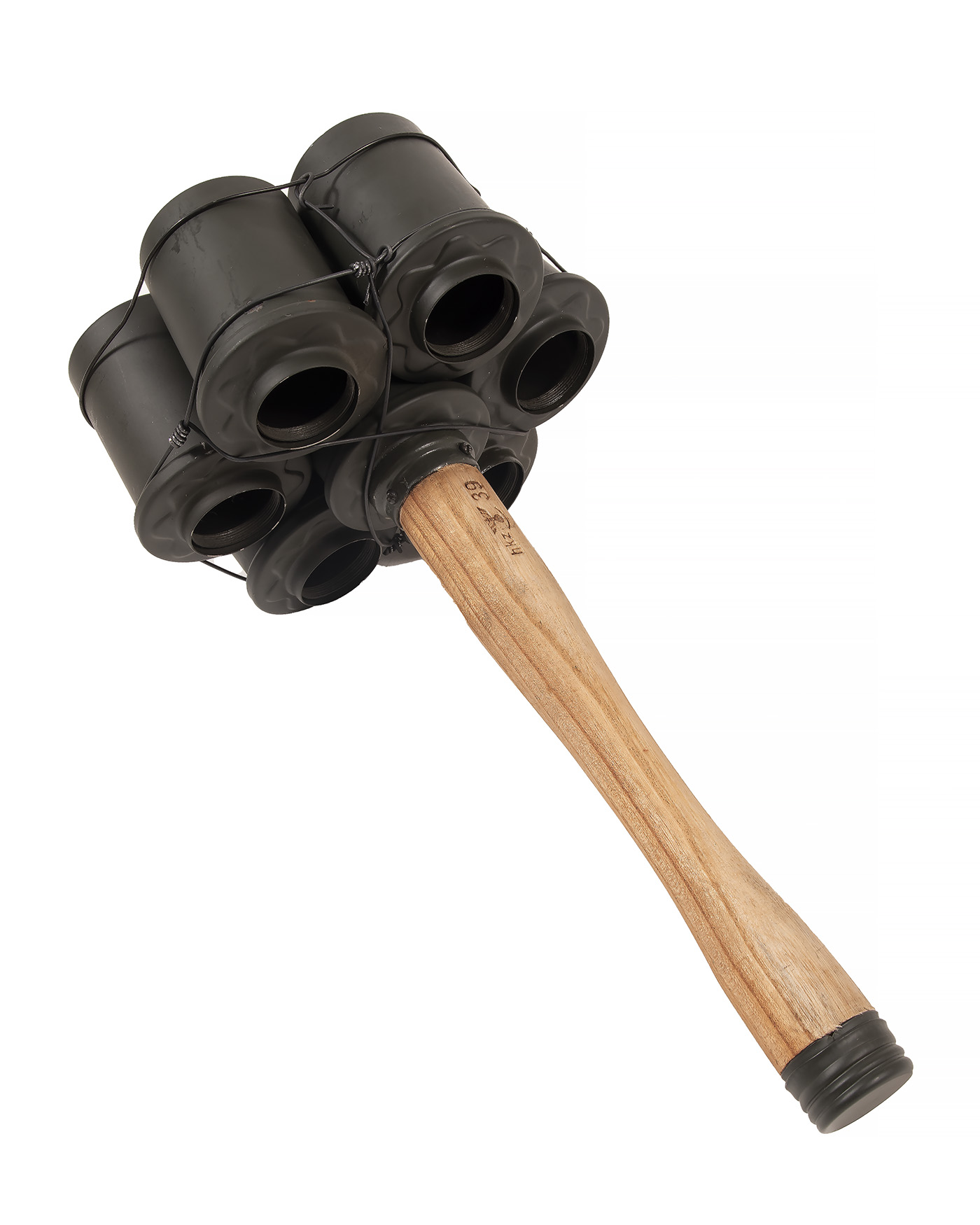
Reproduction German WWII M24 Stick Grenade
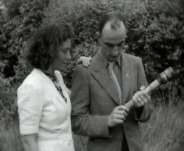
Stielhandgranate - Wikipedia

Original German WWII 1940 / 39 dated M24 Stick Grenade by Richard Rink – International Military Antiques







